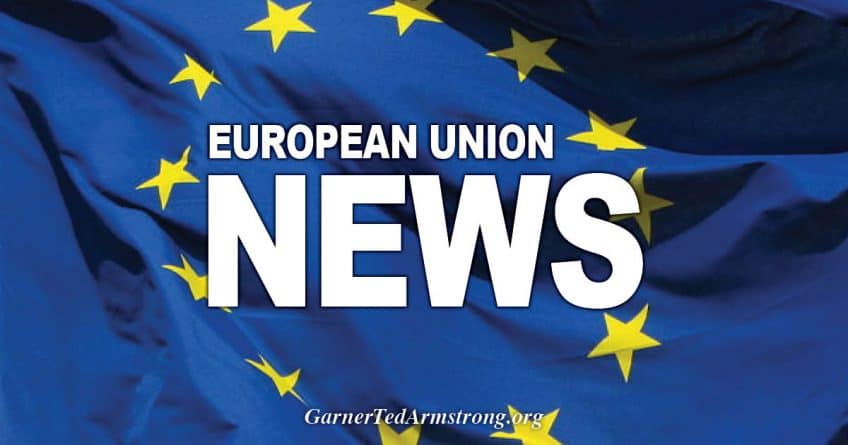When their spaceship first landed on Planet Earth, the Alien Leader chose Brussels. The Alien Guidebook claimed that Europe was a very rich continent where developed countries tried to stop wars by ending aggressive nationalism. Europeans had come together in something called the “European Union” and the peace-loving aliens liked the sound of this. They parked their spaceship at the Berlaymont, the heart of the EU bureaucracy in Brussels.
“Take me to your leader,” the Alien Leader said to a group of passing Brussels bureaucrats.
“Oh, you mean Jean-Claude Juncker,” the first bureaucrat said. “President of the European Commission.”
“Juncker speaks for Europe?” the Alien asked.
“Not exactly,” a second bureaucrat replied. “Maybe you mean Donald Tusk, President of the Council, the group of 28 national EU leaders?”
“So Tusk speaks for Europe?” the Alien Leader asked. Again the answer was “not exactly.”
A third bureaucrat suggested the Aliens could try the European parliament, but this was met with prolonged laughter, since the bureaucrats admitted that no one took the European Parliament leadership seriously, not even some of those who were members.
“The real leaders of Europe are now, as they always have been, the 28 national leaders,” the first bureaucrat admitted. “Here we just bring them together and hope they agree.”
The Alien Leader was confused by this honesty. He retreated to the spaceship, reporting back to his planet that “Europe” was like a gigantic log floating down a river with thousands of ants on board, every one claiming to be steering. The Alien Leader is not alone in being confused. Henry Kissinger, the former US secretary of state, once wondered who he should call if he wanted to speak to Europe. I’m writing this from Amsterdam, where a local taxi driver just told me he understood the British vote for Brexit because he himself would vote to leave the EU. He called it an “expensive failure”, saying Brussels is “loved by no one” and “leads nowhere”.
Brexit has had one unintended consequence. Superficially it has united the other EU heads of government, in effect to agree that Britain’s choice is Bad, Unity is Good. But the truth is that Brussels — with or without Britain — is more like the capital of the European Dis-Union. The borderlands are very troubled.
Turkey, once an aspiring EU member, is now an unhappy critical neighbour. Ukraine is beset by internal turmoil. Malign Russian meddling continues everywhere. Inside the European Dis-Union, in Poland, 60,000 demonstrators marched to proclaim, proudly, their racism. They called for a “pure Poland”, a “white Europe of brotherly nations” and “Clean Blood”. In the Polish parliament the powerful Law and Justice Party now claims $1 trillion in reparations from Germany for the Second World War. Germany points out such matters were deemed settled by agreement in 1953.
In Germany itself there is chaos now that Angela Merkel’s coalition talks have failed. Economically, Germans fear problems with the single currency are far from over. Over the border in Austria the far right has made even bigger gains. In France Emmanuel Macron is still learning how to be president, and how to lead his new party. In Italy there is resentment that the EU is not helping enough to curb migration from North Africa. In Sicily, Europe’s version of Donald Trump, Silvio Berlusconi and his Forza Italia party, polled well in recent elections and are making a significant comeback. And then there is Spain, where politicians in the richest province, Catalonia, wish to secede. Madrid has reacted by trying to criminalize political differences while sending in heavy-handed police from outside the region.
A fair-minded traveller from a distant planet might conclude that Brexit is actually peripheral to the EU’s main problems. Instead of ending nationalism and division, the continent is rife with competing nationalisms and far-right ultra-nationalisms. The EU has helped consolidate democracy, peace, stability and prosperity in what was in the 20th century the most violent continent.
But even ardent europhiles surely must admit that Brexit or no Brexit, there is a crisis of confidence within the EU, and rising nationalism could lead to it unravelling. That’s where lack of leadership hurts most. From the Brussels bureaucracy we hear constantly that whatever the problem, there is only one solution: “more Europe”. But millions of voters want the opposite: less Europe, or at least a different, more nuanced, vision. Across this troubled continent resentment of aliens, foreigners and immigrants is a common political theme. Any Alien Leader landing his spaceship (or his smuggler’s boat) in Europe today will find most countries anxious that he, his crew and extended family immediately leave for somewhere else. An EU that addressed that problem more effectively would demonstrate real leadership. It might even begin to restore a more popular kind of Union.
[Disclaimer]










